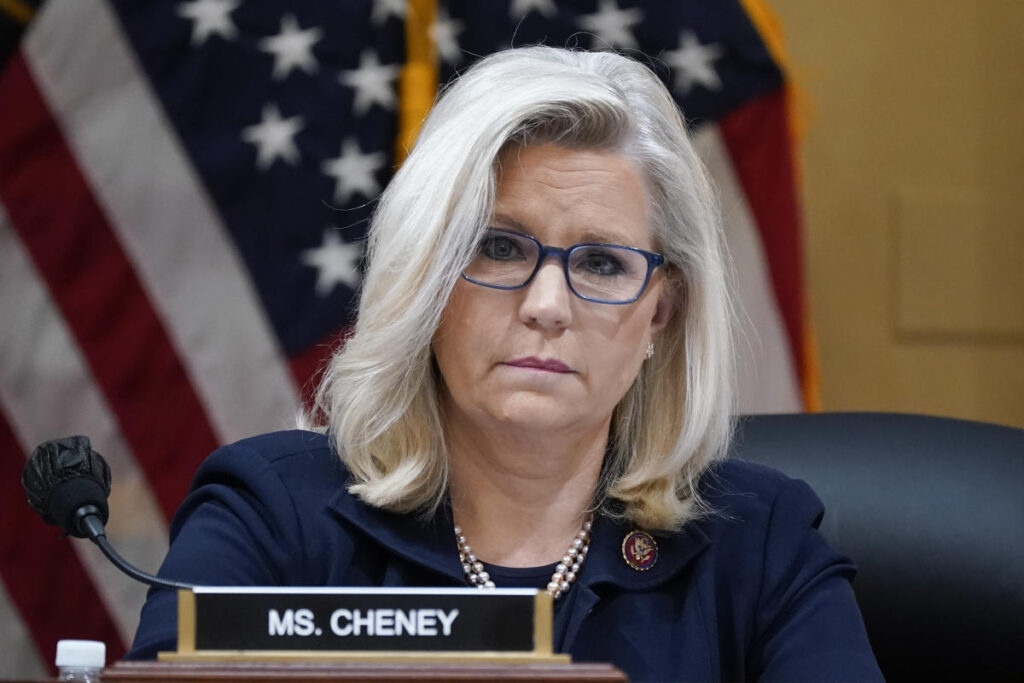In the wake of the January 6, 2021 Capitol attack, House Republicans have wrapped up their investigation and drawn a controversial conclusion: they assert that former GOP Rep. Liz Cheney should face prosecution for her actions related to the investigation of the attack. This finding illustrates a continued effort by the Republican Party to support Donald Trump and vilify those, like Cheney, who have openly criticized his role in the events of that day. The report, released by Chairman of the House Administration Committee Barry Loudermilk, emphasizes the need for accountability and reform within political institutions while simultaneously endorsing a narrative that shields Trump from responsibility for the insurrection. The document signifies a shift in GOP priorities as Trump reemerges as a crucial figure heading towards his anticipated return to the White House.
The 128-page interim report comes at a pivotal moment, as Trump prepares to reinstate certain officials sympathetic to his agenda, including the potential appointment of Kash Patel as FBI Director. Trump’s actions indicate a stance focused on retribution, including pledges to pardon individuals convicted for their involvement in the Capitol riot. The situational demands of legitimacy and accountability underscored in Loudermilk’s report contradict the ongoing narrative pushed by some Republicans that Trump bears no fault in the insurrection. The Biden administration faces pressure regarding the outcomes of the January 6 investigation, particularly as it pertains to newly emerging 2024 election results.
Cheney, once a prominent figure within the GOP, faced backlash after voting to impeach Trump, resulting in her ousting from party leadership and eventual electoral defeat to a Trump-supported opponent. Despite this, she has maintained her commitment to revealing the truth about the Capitol assault. In response to the interim report, Cheney countered that it disregards substantial evidence provided by her committee’s investigative work, asserting that it instead fabricates accusations against her and other committee members. Her firm statements illustrate a profound division within the Republican party as it grapples with the legacy of Trump and the implications of January 6.
In light of Trump’s previous assertions that those who investigated him should face jail time, the report marks an escalation of tensions between Trump’s supporters and detractors. The claims of witness tampering levied against Cheney largely stem from her interactions with Cassidy Hutchinson, a former White House aide who provided significant testimony detailing Trump’s actions during the Capitol riot. The report’s declaration that Cheney’s actions warrant investigation by the FBI underscores the magnitude of the partisan conflict engulfing the political landscape. The juxtaposition of claims of judicial misconduct against Cheney with a broader history of violent insurrection raises unsettling questions about the future state of accountability in American politics.
Loudermilk’s report also revisits the security lapses on January 6, 2021, alongside a critique of the delayed National Guard response. While scrutinizing the actions of the January 6 committee and Speaker Nancy Pelosi, Loudermilk dismisses the committee’s efforts to hold Trump accountable. In contrast, Democratic leaders, including Thompson, rebuff these claims as unfounded and maintain that Trump is ultimately responsible for the chaos that unfolded. This highlights the stark partisan divide as both parties lay claim to differing interpretations of the events and responsibilities surrounding January 6, suggesting an unending cycle of political retaliation likely influencing future electoral processes.
As Congress gears up to confirm the outcomes of the next presidential election, the authors of the report appear to be stoking tensions rather than fostering a spirit of collaboration across party lines. Unlike the Republicans’ refusal to accept the results of the 2020 election, Democrats have committed to honoring the electoral process in 2024. The implications of this approach, coupled with the focus on retribution within the GOP, signify a turbulent road ahead for a party grappling with its identity in the wake of the Capitol attack. As factions within the Republican Party continue to assert their influence, the question remains whether any form of political reconciliation or accountability will emerge or if the rifts will further entrench polarization in American politics. Eschewing the lessons from January 6 in favor of a strategy centered on retribution may ultimately threaten the integrity of future democratic processes.

